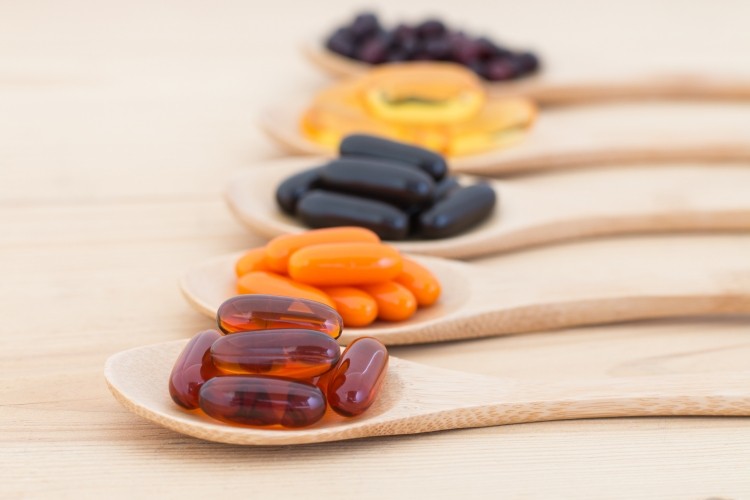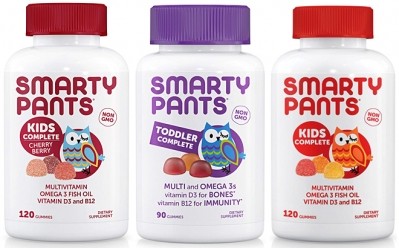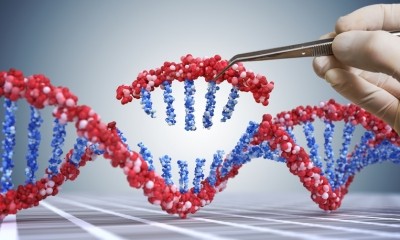The ‘clean label’ trend and what it means to supplement consumers

SmartyPants Vitamins recently partnered with the Clean Label Project and their portfolio received the Purity Award and Clean Label Certifications for overall rating, product purity, product value, heavy metals, process contaminants and byproduct contaminants.
"I think there is an increasing level of suspicion around corporate integrity and in that context, it’s important for all of us to do what we can to show people we take this stuff very seriously and consider it a core obligation to do the best we can in everything we do,” Courtney Nichols Gould, the co-founder and co-CEO of SmartyPants Vitamins, told NutraIngredients-USA. “More and more, and you can see in surveys, ‘clean label’ is a term people are starting to look for when shopping, whether that’s for food or supplements.”
The Clean Label Project is a nonprofit organization that focuses on health and transparency for product labeling to help empower consumers. It tests for more than 130 harmful environmental and industrial contaminants and toxins like arsenic, cadmium, lead, mercury, antibiotics, BPA/BPS and pesticides. It also analyzes ingredient quality and publishes those results as product ratings on their website.
Jackie Bowen, the executive director of Clean Label Project, told us: “Consumers are increasingly concerned about what they put in and on their body and provide for themselves and their family. Media and academic reports drawing attention to issues like glyphosate residues in America's best-selling beer and wine, arsenic in America's bestselling bottled waters, and lead in prenatal vitamins fuels consumers awareness of industrial and environmental contaminants in the supply chain. This is especially true and relevant when it comes to the products marketed to pregnant women, infants, and children. Clean Label Project certification serves to prove that these brands are going above and beyond what's required by federal law.”
Bowen says the Clean Label Project works with a variety of brands across a wide range of products. In the supplement space, they’ve partnered with Smartypants Vitamins, Wicked Protein, Puori and Enzymedica.
An increase in consumer advocacy attention, calls for action from American Academy of Pediatrics, Consumer Reports, Environmental Defense Fund, and GMO Free USA are all fueling industry awareness and reform. “Clean Label Project has seen a significant increase in the number of brands changing up their ingredient sourcing and supplier assurance programs,” Bowen told NutraIngredients-USA.
What constitutes a ‘clean label’?
Because the FDA doesn’t have a legal definition of “clean label,” the term is open for interpretation. For many, it’s the elimination of allergens and other ingredients. In some cases, it’s less about being simple, and more about transparency. In other situations, it might be sustainability or traceability.
For Joshua Eichel, founder and CEO of All In Nutrition LLC, it’s about being able to back up claims. Clean Label Project awarded his company’s WICKED protein bar with a Certified Clean Label.
“They don’t tell certified brands when they are sampling and testing products. It means that we need to stay on our toes and make sure our ingredient quality consistently remains high. We thought this was a cool and novel approach and much more consumer-focused. Also, many brands say that they are "Clean Label", but what does that mean without a certification behind it? The Clean Label Project is the standard and all brands that say "Clean Label" without the certification are lying until they get their products tested,” Eichel told NutraIngredients-USA.
“It’s not just a matter of looking for simpler ingredient decks. Consumers are increasingly interested in a product’s ingredients as well as the purity and label accuracy of those products,” said Bowen.
Oliver Amdrup, the founder and CEO of natural vitamin company Puori, said “In regards to consumer reactions, we are definitely seeing a connection between Puori and the Clean Label Project both in terms of comments and questions directly B2C, but also in our communication with the forward-thinking retailers. That being said, the Clean Label Project has a long way to go compared to the awareness and knowledge compared to USDA Organic or Non-GMO verified - but we believe the Transparency Project, testing every batch of every finished consumer product, will create far superior consumer safety and efficacy and at the end of the day this is what it’s all about.”
Consumers have a long way to go too
InsightsNow, a behavioral research firm, released their latest report on the Clean Label trend, "Clean Label Research Community Behavior Report", which identified consumer misperceptions around food, beverage and supplement ingredient claims regarding health-promoting benefits.
"One identified trend is concern around and attention to functional ingredients in products, so this past wave of the study looked at attitudes and lifestyle behaviors driving consumer choice in this area,” said Dave Lundahl, Founder and CEO of InsightsNow.
The report found that consumers may know a lot about the functional benefits of ingredients, but are uninformed when it comes to some ingredients. For instance, respondents believed that Omega 6 increases energy, even though scientific studies found it actually does not promote energy like a stimulant would.
It’s a surprising find since consumers have immediate access to nutritional information at their fingertips. But it’s a double-edged sword. As access to scientific information increases, so does reliance on social media. According to NBCI, one in three US consumers consult platforms like Facebook and YouTube for health-related matters.
Not all consumers realize that drugs and dietary supplements are regulated differently
Before a drug can be released, it has to go through extensive pre-market approval. In other words, a drug is considered unsafe until it is proven safe. For dietary supplements, there is no pre-market approval process (although there is a pre-market notification process for new dietary ingredients). The Clean Label Project hopes to help fill that gap.
“Clean Label Project is trying to fill the void between the testing that is mandatory at the federal level and the chemicals of concern and industrial and environmental contaminants that consumers are concerned about and want to avoid,” says Bowen.








